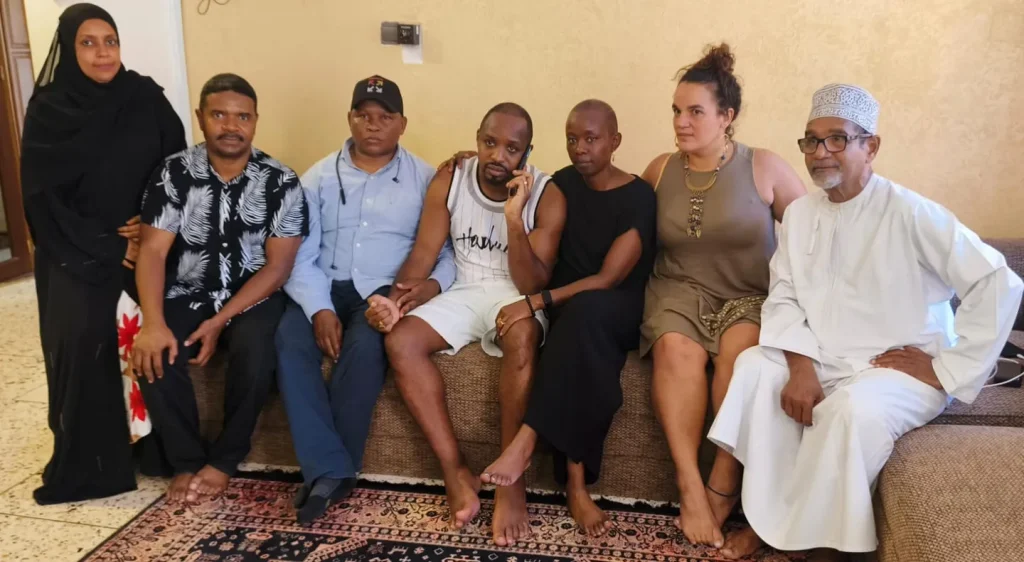Kenyan activist Boniface Mwangi has been released by Tanzanian authorities after his arrest earlier this week in Dar es Salaam, where he had attempted to attend a high-profile treason hearing for Tanzanian opposition leader Tundu Lissu.
The Kenya National Commission on Human Rights (KNCHR) confirmed on Thursday that Mwangi had safely returned to Kenya and was received in Kwale County, in the country’s southeast. Kenya’s Foreign Minister Musalia Mudavadi also confirmed the release.
Mwangi was detained on Monday after attempting to observe Lissu’s court appearance, a case that has drawn international attention amid accusations of political repression in Tanzania. Lissu, a vocal critic of President Samia Suluhu Hassan, was charged with treason in April over a speech authorities claim incited rebellion and threatened October’s upcoming elections.
According to an advocacy group, Mwangi was arrested for allegedly providing false information to gain entry into Tanzania. His detention sparked outrage among human rights defenders across East Africa.
The KNCHR said Mwangi was in “high spirits” following his release but required medical attention. “The Commission and partners are arranging for his transfer to Nairobi for treatment,” the body posted on X, alongside a photo of Mwangi with fellow activist Hussein Khalid.
Khalid reported that Mwangi had been severely tortured by Tanzanian security forces and was in a fragile physical state: “His body is broken, but his spirit remains strong.”
Tanzania’s Immigration Services Department has not responded to requests for comment regarding the torture allegations.
It remains unclear whether Ugandan lawyer and activist Agather Atuhaire, who was reportedly detained alongside Mwangi, has also been released.
President Hassan, who is seeking re-election later this year, has recently faced criticism over a series of arrests targeting opposition figures. Despite her administration’s stated commitment to upholding human rights, Hassan issued a warning earlier this week against what she called foreign interference, cautioning activists from other countries against “invading and interfering in our affairs.”



